5 start with V start with V
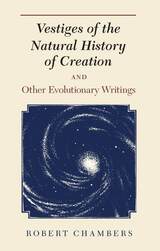
With a new introduction by James Secord, a bibliography of reviews, and a new index, this volume adds to Vestiges and Explanations Chambers's earliest works on cosmology, an essay on Darwin, and an autobiographical essay, raising important issues about the changing meanings of popular science and religion and the rise of secular ideologies in Western culture.
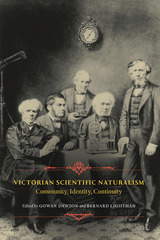
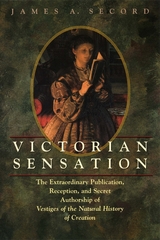
In a pioneering cultural history, James A. Secord uses the story of Vestiges to create a panoramic portrait of life in the early industrial era from the perspective of its readers. We join apprentices in a factory town as they debate the consequences of an evolutionary ancestry. We listen as Prince Albert reads aloud to Queen Victoria from a book that preachers denounced as blasphemy vomited from the mouth of Satan. And we watch as Charles Darwin turns its pages in the flea-ridden British Museum library, fearful for the fate of his own unpublished theory of evolution. Using secret letters, Secord reveals how Vestiges was written and how the anonymity of its author was maintained for forty years. He also takes us behind the scenes to a bustling world of publishers, printers, and booksellers to show how the furor over the book reflected the emerging industrial economy of print.
Beautifully written and based on painstaking research, Victorian Sensation offers a new approach to literary history, the history of reading, and the history of science. Profusely illustrated and full of fascinating stories, it is the most comprehensive account of the making and reception of a book (other than the Bible) ever attempted.
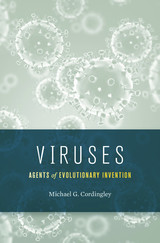
Viruses are the most abundant biological entities on Earth, and arguably the most successful. They are not technically alive, but—as infectious vehicles of genetic information—they have a remarkable capacity to invade, replicate, and evolve within living cells. Synthesizing a large body of recent research, Michael Cordingley goes beyond our familiarity with viral infections to show how viruses spur evolutionary change in their hosts, shape global ecosystems, and influence every domain of life.
In the last few decades, research has revealed that viruses are fundamental to the photosynthetic capacity of the world’s oceans and the composition of the human microbiome. Perhaps most fascinating, viruses are now recognized as remarkable engines of the genetic innovation that fuels natural selection and catalyzes evolution in all domains of life. Viruses have coevolved with their hosts since the beginning of life on our planet and are part of the evolutionary legacy of every species that has ever lived.
Cordingley explains how viruses are responsible for the creation of many feared bacterial diseases and the emergence of newly pathogenic and drug-resistant strains. And as more and more viruses jump to humans from other animals, new epidemics of viral disease will threaten global society. But Cordingley shows that we can adapt, relying on our evolved cognitive and cultural capacities to limit the consequences of viral infections. Piecing together the story of viruses’ major role within and beyond human disease, Viruses creates a valuable roadmap through the rapidly expanding terrain of virology.
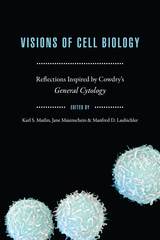
Despite extraordinary advances in describing both the structure and function of cells, cell biology tends to be overshadowed by molecular biology, a field that developed contemporaneously. This book remedies that unjust disparity through an investigation of cell biology’s evolution and its role in pushing forward the boundaries of biological understanding. Contributors show that modern concepts of cell organization, mechanistic explanations, epigenetics, molecular thinking, and even computational approaches all can be placed on the continuum of cell studies from cytology to cell biology and beyond. The first book in the series Convening Science: Discovery at the Marine Biological Laboratory, Visions of Cell Biology sheds new light on a century of cellular discovery.
READERS
Browse our collection.
PUBLISHERS
See BiblioVault's publisher services.
STUDENT SERVICES
Files for college accessibility offices.
UChicago Accessibility Resources
home | accessibility | search | about | contact us
BiblioVault ® 2001 - 2024
The University of Chicago Press









